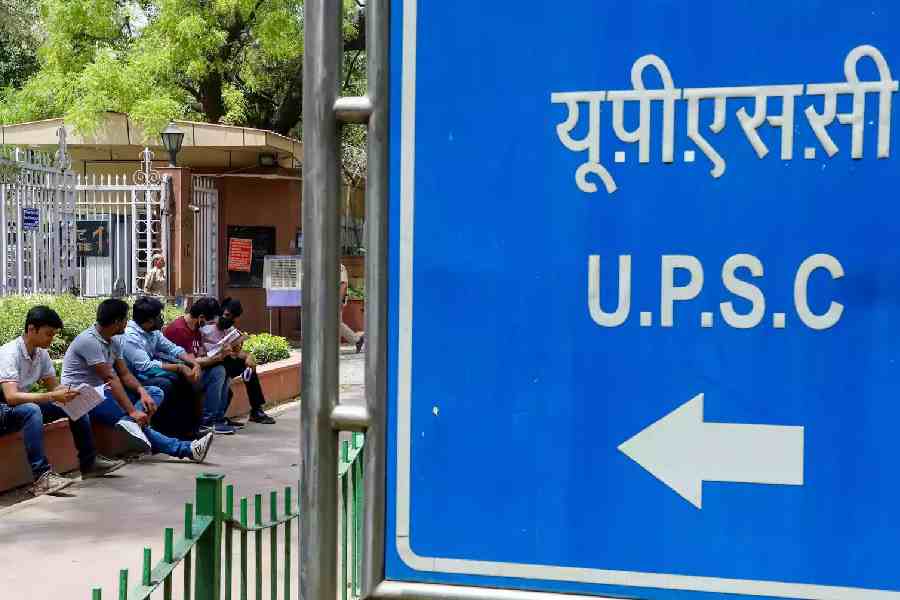We often hear of attackers hacking large companies and their databases. Not very long ago a hacker hacked one of the largest companies - Uber’s - website. Owing to this glitch, all the crucial details of about 50 million users were exposed. Besides, in the contemporary era, top-notch companies like Google, Yahoo, Instagram, Facebook, and many others have also started hiring hackers. Their work involves hacking the system to expose its vulnerabilities so that the firm can go ahead and fix them. However, despite them being an in-demand job role, not much is known about it even in modern times. Therefore, to answer queries about the job role and much more related to the subject, The Telegraph Online Edugraph organised a webinar with Mr. Sandeep Sengupta, founder and director of the Indian School of Anti-Hacking.
The webinar witnessed more than 300 participants right from class 8 to the graduate level. Thus, it had some crucial takeaways which can be beneficial for students willing to make a career in this field. The webinar began with Mr. Sengupta giving a basic idea to the young participants about ethical hacking, and what top companies have had their systems hacked in the past. One of the critical revelations that he made in the webinar was how the world today needs more than 20 lakh cybersecurity professionals by 2025, to safeguard the data and information of top-notch firms in the upcoming times.
When a fresh, young college graduate ventures out into the corporate world to look for a job and thereafter build his/her career, they usually start doing so by searching for available jobs online. Little do they understand how to exactly go ahead. Sharing his screen Mr. Sengupta then went on to throw light on the salary packages offered to a fresher cybersecurity professional in the field and the number of capable employees that companies can look forward to hiring. As per his revelations, it was highlighted that companies currently are offering extremely high salaries to cybersecurity professionals, making it a much-coveted career choice of the 21st century.
These two subheads were further classified into the job profiles that come under them…
As per his explanation, White Hat hackers are also known as ethical hackers, and black hat hackers are malicious ones.
Technology in the current world continues to upgrade at a fast pace and as witnessed time and again, whatever software we know about today changes its interface very soon. To sum up, constant upgrades and transformations are a part of everyday life. As per our academic curriculums, be it school or college, students in every phase of their academic life are required to follow a curriculum in order to proceed to the next level. The same fixed syllabus does not help in exposing them to the real world, which becomes difficult for them to cope with after student life.
This particular issue was further highlighted by Mr. Sengupta in a much more detailed manner in the webinar. According to him, when a particular student steps into the corporate world, either by applying or appearing for interviews, the job description that is listed acts as a syllabus, therefore, making them industry ready.
Hacking is most commonly associated with criminal activity, though that is not always true. Some hackers use their skills to penetrate corporate security systems and extract sensitive information. As a result, hacking is illegal, however, the true value of hacking remains a mystery to most people. Ethical hacking is majorly the process of gaining access to systems or data only to protect sensitive data. Ethical hackers are hired primarily to identify loopholes in the system so they can be worked on.
Those willing to make a career in this industry can easily start their learning process by gaining brief but accurate information from Wikipedia and thereafter Youtube, as suggested by Mr. Sengupta. While Wikipedia will tell you the basic things, YouTube features more detailed information on the subject.
It's a big advantage that all companies are taking precautions in advance. By addressing security, an ethical hacker can easily ensure that the company and its customers have complete confidence in the company in question. Hackers are smart and know all the potential entry points into the final system. Fixing these entry points is critical to avoid a crisis. However, starting off and finding a niche for themselves in the industry can initially be challenging for a student.
When starting out, instead of focusing on whether you need a high-end system, think about whether you like programming or not. Understanding this is the first step in figuring out which niche works best for you.
Some of the popular programs to learn, highlighted by Mr. Sengupta for the two groups of students were:
However, Mr. Sengupta was quick to mention that no programming knowledge is needed by art graduates to proceed further and excel in the field, making this an option that anyone can explore.
Becoming a certified ethical hacker requires a few key qualities. An ethical hacker is first and foremost engaged in keeping our data secure and in our digital-first world, which itself makes it a lucrative career choice. The Telegraph Online Edugraph’s initiative was aimed at educating students interested in the field so that they can go ahead and pursue a career in cybersecurity.










